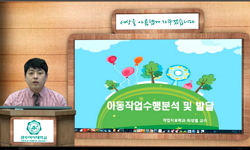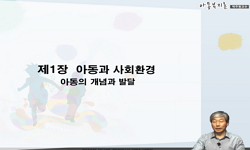본 연구는 Bronfenbrenner의 생태학적 관점을 토대로 ADHD 아동의 또래관계 어려움을 이해하기 위해 실시하였다. 이를 위해 생태학 이론에 근거하여 ADHD 아동의 또래관계에 영향을 주는 변인을 개...
http://chineseinput.net/에서 pinyin(병음)방식으로 중국어를 변환할 수 있습니다.
변환된 중국어를 복사하여 사용하시면 됩니다.
- 中文 을 입력하시려면 zhongwen을 입력하시고 space를누르시면됩니다.
- 北京 을 입력하시려면 beijing을 입력하시고 space를 누르시면 됩니다.

ADHD 아동의 또래관계 어려움에 대한 생태학적 관점에서의 이해 = Understanding Difficulties of Peer Relationship of Children with ADHD Based on Ecological Framework
한글로보기https://www.riss.kr/link?id=A99635189
- 저자
- 발행기관
- 학술지명
- 권호사항
-
발행연도
2013
-
작성언어
-
-
주제어
아동 ; 또래관계 ; 생태학적 관점 ; ADHD ; Children ; Peer Relationship ; Ecological Theory
-
KDC
370
-
등재정보
KCI등재
-
자료형태
학술저널
- 발행기관 URL
-
수록면
307-330(24쪽)
-
KCI 피인용횟수
16
- 제공처
-
0
상세조회 -
0
다운로드
부가정보
국문 초록 (Abstract)
본 연구는 Bronfenbrenner의 생태학적 관점을 토대로 ADHD 아동의 또래관계 어려움을 이해하기 위해 실시하였다. 이를 위해 생태학 이론에 근거하여 ADHD 아동의 또래관계에 영향을 주는 변인을 개인적 특성, 미시체계, 중간체계, 외체계, 거시체계, 시간체계로 나누어 살펴보았다. ADHD 아동의 또래관계에 영향을 미치는 개인적 특성으로는 ADHD 하위유형, 공격성, 인지적 오류 및 정서지각 능력의 결함이 있다. 미시체계에는 또래의 편견, 부모의 양육태도, 교사와의 상호작용, 학교풍토가 ADHD 아동의 또래관계에 영향을 미치는 요인에 해당되었다. 중간체계에는 가정과 학교 간 관계가, 외체계에는 미디어에 노출이, 거시체계에는 사회적 편견이 또래관계에 영향을 미칠 수 있는 요인에 해당되었다. 이혼이나 재혼과 같은 가족 구조의 변화 역시 시간체계로서 ADHD 아동의 또래관계에 영향을 미칠 수 있다. 종합하면, ADHD 아동의 또래관계 증진을 위해서는 아동의 개인적 특성뿐만 아니라 아동을 둘러싼 맥락적 요인들이 함께 다루어져야 하고, 이를 위해 생태학적 관점에서 개입이 활성화 되어야 한다. 연구 결과에 근거하여 논의 및 시사점이 제시되었다.
다국어 초록 (Multilingual Abstract)
The purpose of this study was to provide a comprehensive review for peer relationship of children with ADHD within the context of Bronfenbrenner’s ecological framework. Based on the ecological approach, this review integrated empirical findings on t...
The purpose of this study was to provide a comprehensive review for peer relationship of children with ADHD within the context of Bronfenbrenner’s ecological framework. Based on the ecological approach, this review integrated empirical findings on the characteristics of peer relationship of children with ADHD within the context of their characteristics, microsystem, mesosystem, exosystem, macrosystem and chronosystem levels. Subtypes of ADHD, aggression, cognitive or emotional recognition deficits were found to have significant impacts on the individual characteristics of children with ADHD. Parenting style, negative peer climate, teaching styles and school climate were found to have impacts on their microsystem. The parent-peer or parent-teacher relationships were found to have impacts on mesosystem. Exposure to media violence have impacts on exosystem. Cultural norms and stigma have impacts on macrosystem. It was also noted that changes in family structure have significant impacts on chronosystem of children with ADHD. Based on the review, findings and implications were discussed accordingly.
목차 (Table of Contents)
- 요약
- Ⅰ. 서론
- Ⅱ. 연구방법
- Ⅲ. 연구결과
- Ⅳ. 논의
- 요약
- Ⅰ. 서론
- Ⅱ. 연구방법
- Ⅲ. 연구결과
- Ⅳ. 논의
- 참고문헌
- Abstract
참고문헌 (Reference)
1 최진오, "초등학생의 ADHD증상에 따른 오프라인, 온라인 학교폭력 피해수준" 한국특수아동학회 14 (14): 191-210, 2012
2 김경은, "청소년의 사이버폭력에 관련된 생태체계변인의 영향" 한국청소년복지학회 14 (14): 213-238, 2012
3 이상균, "청소년의 또래폭력 가해경험에 대한 생태 체계적 영향 요인" 한국아동복지학회 (19) : 141-170, 2005
4 장은진, "주의력 결핍 과잉 행동 아동을 위한 학교기반 개입의 예비 연구" 한국열린교육학회 13 (13): 63-84, 2005
5 장미선, "아동의 정서지능에 관련된 생태학적 변인 연구" 대한가정학회 44 (44): 11-21, 2006
6 최옥희, "생태학적 변인이 초등학교 1학년 아동의 학교 적응, 학업 성취에 미치는 영향" 한국초등교육학회 22 (22): 133-160, 2009
7 서경희, "또래관계 중심 중재가 ADHD 아동의 우정 발달과 사회적 기술에 미치는 영향: 질적·양적 연구" 한국정서·행동장애아교육학회 26 (26): 43-64, 2010
8 윤종희, "가족복지의 생태학적 접근" 39 (39): 93-105, 2001
9 Fischer, M., "Young adult follow-up of hyperactive children : self-reported psychiatric disorders, comorbidity, and the role of childhood conduct problems and teen CD" 30 (30): 463-476, 2002
10 Ohan, J. L., "What is the social impact of ADHD in girls? A multi-method assessment" 35 (35): 239-250, 2007
1 최진오, "초등학생의 ADHD증상에 따른 오프라인, 온라인 학교폭력 피해수준" 한국특수아동학회 14 (14): 191-210, 2012
2 김경은, "청소년의 사이버폭력에 관련된 생태체계변인의 영향" 한국청소년복지학회 14 (14): 213-238, 2012
3 이상균, "청소년의 또래폭력 가해경험에 대한 생태 체계적 영향 요인" 한국아동복지학회 (19) : 141-170, 2005
4 장은진, "주의력 결핍 과잉 행동 아동을 위한 학교기반 개입의 예비 연구" 한국열린교육학회 13 (13): 63-84, 2005
5 장미선, "아동의 정서지능에 관련된 생태학적 변인 연구" 대한가정학회 44 (44): 11-21, 2006
6 최옥희, "생태학적 변인이 초등학교 1학년 아동의 학교 적응, 학업 성취에 미치는 영향" 한국초등교육학회 22 (22): 133-160, 2009
7 서경희, "또래관계 중심 중재가 ADHD 아동의 우정 발달과 사회적 기술에 미치는 영향: 질적·양적 연구" 한국정서·행동장애아교육학회 26 (26): 43-64, 2010
8 윤종희, "가족복지의 생태학적 접근" 39 (39): 93-105, 2001
9 Fischer, M., "Young adult follow-up of hyperactive children : self-reported psychiatric disorders, comorbidity, and the role of childhood conduct problems and teen CD" 30 (30): 463-476, 2002
10 Ohan, J. L., "What is the social impact of ADHD in girls? A multi-method assessment" 35 (35): 239-250, 2007
11 Bandyopadhyay, S., "Validity of three school climate scales to assess bullying, aggressive attitudes and help seeking" 38 (38): 338-355, 2009
12 Gottfredson, D. G., "Toward safe and orderly schools: National study of delinquency prevention in schools" U. S. Department of Justice 2004
13 Whalen, C. K., "The social profile of attention-deficit hyperactivity disorder : Five fundamental facets" 1 : 395-410, 1992
14 Kats-Gold, I., "The role of simple emotion recognition skills among school aged boys at risk of ADHD" 35 (35): 363-378, 2007
15 Chang, L., "The role of classroom norms in contextualizing the relations of children's social behaviors to peer acceptance" 40 (40): 691-702, 2004
16 Jack, A., "The moderating role of verbal aggression on the relationship between parental feedback and peer status among children with ADHD" 39 (39): 1059-1071, 2011
17 Mikami, A. Y., "The importance of friendship for youth with Attention-Deficit /Hyperactivity Disorder" 13 (13): 181-198, 2010
18 Sibley, M., "The delinquency outcomes of boys with ADHD with and without comorbidity" 39 (39): 21-32, 2011
19 Martin, J. K., "The construction of fear : Americans’ preferences for social distance from children and adolescents with mental health problems" 48 (48): 50-67, 2007
20 Bronfenbrenner, U., "The Ecology of human development: experiments by nature and design" Harvard University Press 1979
21 Donohue, K. M., "Teacher’s classroom practices and children’s rejection by their peers" 24 (24): 91-118, 2003
22 Pianta, R. C., "Teacher-child relationships and the process of adjustment to school, In Beyond the parent: the role of other adult in children’s lives" Jossey-Bass 61-80, 1992
23 dosReis, S., "Stigmatizing experiences of parents of children with a new diagnosis of ADHD" 61 (61): 811-816, 2010
24 Antshel, K. M., "Social skills training reconsidered: what role should peers play?" 13 (13): 1-5, 2005
25 Mikami, A. Y., "Social skills differences among attention-deficit/hyperactivity disorder types in a chat room assessment task" 35 (35): 509-521, 2007
26 de Boo, G. M., "Social incompetence in children with ADHD : possible moderators and mediators in social-skills training" 27 (27): 78-97, 2007
27 Mikami, A. Y., "Social context influences on children’s rejection by their peers" 4 (4): 123-130, 2010
28 DuPaul, G., "School-based intervention for children with Attention Deficit Hyperactivity Disorder: effects on academic, social, and behavioral functioning" 53 (53): 161-176, 2006
29 Mayer-Adams, N., "School violence : bullying behaviors and the psychosocial school environment in middle schools" 30 (30): 211-221, 2008
30 Burns, M., "School psychology research : combining ecological theory and prevention science" 40 (40): 132-139, 2011
31 Gregory, A., "School climate and implementation of a preventive intervention" 40 (40): 250-260, 2007
32 Hetherington, E. M., "Risk and resilience in children coping with their parents' divorce and remarriage, In Resilience and vulnerability: Adaption in the context of childhood adversities" Cambridge University 182-212, 2003
33 Wymbs, B., "Rate and Predictors of Divorce Among Parents of Youths With ADHD" 76 (76): 735-744, 2008
34 Williams, K. R., "Prevalence and predictors of internet bullying" 41 (41): 14-21, 2007
35 Elik, N., "Preservice teachers’ open-minded thinking dispositions, readiness to learn, and attitudes toward learning and behavioral difficulties in students" 33 (33): 127-146, 2010
36 Lee, C. H., "Personal and interpersonal correlates of bullying behaviors among Korean middle school students" 25 (25): 152-176, 2009
37 Kupermine, G., "Perceived school climate and difficulties in the social adjustment of middle school students" 1 (1): 76-88, 1997
38 Hodgens, J. B., "Peer-based differences among boys with ADHD" 29 (29): 443-452, 2000
39 Hoza, B., "Peer-assessed outcomes in the multimodal treatment study of children with attention deficit hyperactivity disorder" 34 (34): 74-86, 2005
40 Wiener, J., "Peer victimization in children with attention–deficit/ hyperactivity disorder" 46 (46): 116-131, 2009
41 McQuade, J. D., "Peer problems in ADHD : current status and future directions" 14 (14): 320-324, 2008
42 Hoza, B., "Peer functioning in children with ADHD" 7 (7): 101-106, 2007
43 Blachman, D, R., "Patterns of friendship among girls with and without attention-deficit/hyperactivity disorder" 30 (30): 625-640, 2002
44 Mikami, A. Y., "Parental influences on children with ADHD : I. Parental behaviors associated with children’s peer relationships" 38 (38): 721-736, 2010
45 Zalecki, C. A., "Overt and relational aggression in girls with attention deficit hyperactivity disorder" 33 (33): 125-137, 2004
46 Meyers, J., "Organizational consultation and systems intervention, In Handbook of School Psychology" Wiley 821-940, 2009
47 Ohlmeier, M, D., "Nicotine and alcohol dependence in patients with comorbid attention-deficit/hyperactivity disorder(ADHD)" 42 (42): 539-543, 2007
48 Anderson, C. A., "Mother-child interactions in ADHD and comparison boys : relationships with overt and covert externalizing behavior" 22 (22): 247-265, 1994
49 Brand, S., "Middle school improvement and reform : development and validation of a school-level assessment of climate, cultural pluralism, and school safety" 95 (95): 570-588, 2003
50 Hughes, J. N., "Influence of teacher-student relationships on aggressive children’s development : A prospective study" 28 (28): 173-184, 1999
51 Huston, A. C., "Human development in societal context" 61 (61): 411-437, 2009
52 Mikami, A. Y., "Gender and conduct problems predict peer functioning among children with Attention-Deficit/Hyperactivity" 40 (40): 777-786, 2011
53 Johnston, C., "Families of children with attention-deficit/ hyperactivity disorder : review and recommendations for future research" 4 (4): 183-207, 2001
54 Marton, L., "Empathy and social perspective taking in children with attention-deficit/hyperactivity disorder" 37 (37): 107-118, 2009
55 Mikami, A. Y., "Effects of a teacher professional development intervention on peer relationships in secondary classrooms" 40 (40): 367-385, 2011
56 Bronfenbrenner, U., "Ecological systems theory, In Six theories of child development: Revised for mutations and current issues" Jessica Kingsley 1992
57 Meyers, A. B., "Ecological approaches to organizational consultation and systems change in educational settings" 22 (22): 106-124, 2012
58 Lamden, A. M., "Divorce: Crisis intervention and prevention with children of divorce and remarriage, In Handbook of crisis counseling, intervention, and prevention in the schools" Lawrence Erlbaum Associates, Inc 83-104, 2002
59 Wiener, J., "Children’s perceptions of their ADHD symptoms : positive illusions, attributions, and stigma" 27 (27): 217-242, 2012
60 Kaiser, N. M., "Child ADHD severity and positive and negative parenting as predictors of child social functioning : evaluation of three theoretical models" 15 (15): 193-203, 2011
61 McQuade, J. D., "Changes in self-perceptions in children with ADHD : a longitudinal study of depressive symptoms and attributional Style" 42 (42): 170-182, 2011
62 Huang-Pollock, C., "Can executive functions explain the relationship between attention deficit hyperactivity disorder and social adjustment?" 37 (37): 679-691, 2009
63 Pianta, R. C., "Building capacity for positive youth development in secondary schools: Teachers and their interactions with students, In Toward positive youth development: Transforming schools and community programs" Oxford University Press 2008
64 Guhn, M., "Bioecological theory, early child development and the validation of the population-level early development instrument" 103 (103): 193-217, 2011
65 Cadesky, E. B., "Beyond words: how do children with ADHD and/or conduct problems process nonverbal information about affect?" 39 (39): 1160-1167, 2000
66 Yoo, H. J., "Attention deficit hyperactivity symptoms and Internet addiction" 58 (58): 487-494, 2004
67 Bagwell, C. L., "Anxiety and mood disorders in adolescents with childhood attention-deficit /hyperactivity disorder" 14 (14): 178-187, 2006
68 Breivik, K., "Adolescent's adjustment in four post-divorce family structures : single mother, stepfather, joint physical custody and single father families" 44 (44): 99-124, 2006
69 이미아, "ADHD아동의 사회적 유능성과 영향요인간의 관계" 한국특수교육학회 43 (43): 17-35, 2008
70 황순영, "ADHD아동 부모의 통합학급 교사와의 협력에 대한 만족도와 방해요인 탐색" 한국특수아동학회 13 (13): 45-61, 2011
71 이경아, "ADHD 초등학생의 학교적응과 학교기반개입에 대한 부모의 인식과 요구" 한국정서·행동장애아교육학회 24 (24): 121-147, 2008
72 배도희, "ADHD 아동과 우울한 아동의 얼굴표정 및 음성을 통한 비언어적 정서인식능력" 한국임상심리학회 23 (23): 741-754, 2004
73 Hong, J. S., "A review of research on bullying and peer victimization in school : an ecological system analysis" 17 (17): 311-322, 2012
74 Cialdini, R. B., "A focus theory of normative conduct: A theoretical refinement and reevaluation of the role of norms in human behavior" 24 : 201-234, 1991
동일학술지(권/호) 다른 논문
-
현장교사들의 학습연구년제 참여경험에 대한 질적 사례연구
- 한국열린교육학회
- 이동성(Lee, Dongsung)
- 2013
- KCI등재
-
- 한국열린교육학회
- 김순남(Kim, Soonnam)
- 2013
- KCI등재
-
대학의 의사소통 능력 향상 교육에서 문제중심학습(PBL) 적용 방안
- 한국열린교육학회
- 김병길(Kim, Byounggill)
- 2013
- KCI등재
-
- 한국열린교육학회
- 이광성(Lee, Kwangsung)
- 2013
- KCI등재
분석정보
인용정보 인용지수 설명보기
학술지 이력
| 연월일 | 이력구분 | 이력상세 | 등재구분 |
|---|---|---|---|
| 2026 | 평가예정 | 재인증평가 신청대상 (재인증) | |
| 2020-01-01 | 평가 | 등재학술지 유지 (재인증) |  |
| 2017-01-01 | 평가 | 등재학술지 유지 (계속평가) |  |
| 2015-03-18 | 학회명변경 | 영문명 : 미등록 -> The Journal of Yeolin Education |  |
| 2013-01-01 | 평가 | 등재학술지 유지 (등재유지) |  |
| 2010-01-01 | 평가 | 등재학술지 유지 (등재유지) |  |
| 2008-01-01 | 평가 | 등재학술지 유지 (등재유지) |  |
| 2005-01-01 | 평가 | 등재학술지 선정 (등재후보2차) |  |
| 2004-01-01 | 평가 | 등재후보 1차 PASS (등재후보1차) |  |
| 2003-01-01 | 평가 | 등재후보학술지 선정 (신규평가) |  |
학술지 인용정보
| 기준연도 | WOS-KCI 통합IF(2년) | KCIF(2년) | KCIF(3년) |
|---|---|---|---|
| 2016 | 1.54 | 1.54 | 1.6 |
| KCIF(4년) | KCIF(5년) | 중심성지수(3년) | 즉시성지수 |
| 1.65 | 1.7 | 1.914 | 0.5 |





 KCI
KCI 스콜라
스콜라






